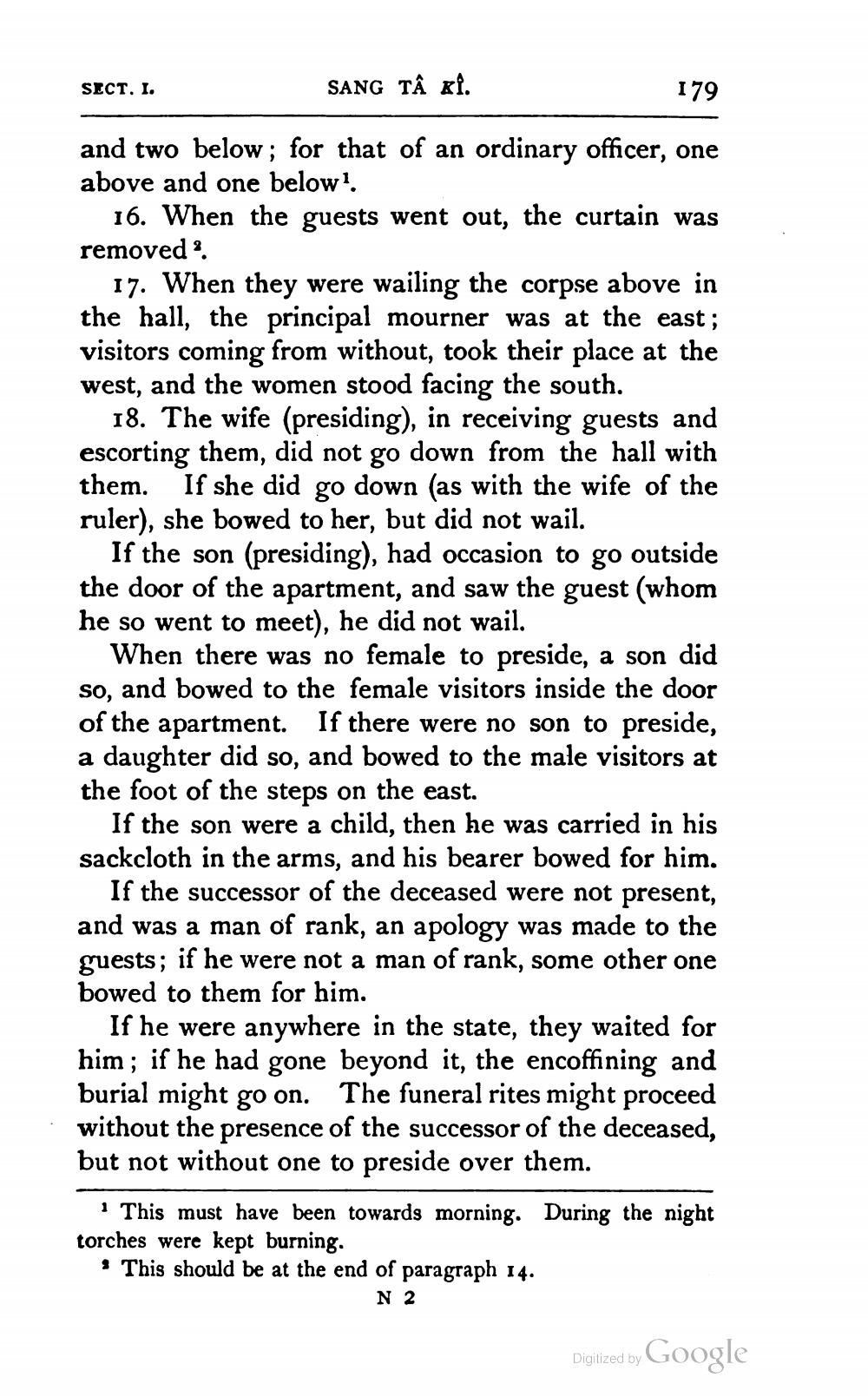________________
SANG TÂ KI.
179
and two below; for that of an ordinary officer, one above and one below1.
SECT. I.
16. When the guests went out, the curtain was removed 2.
17. When they were wailing the corpse above in the hall, the principal mourner was at the east ; visitors coming from without, took their place at the west, and the women stood facing the south.
18. The wife (presiding), in receiving guests and escorting them, did not go down from the hall with them. If she did go down (as with the wife of the ruler), she bowed to her, but did not wail.
If the son (presiding), had occasion to go outside the door of the apartment, and saw the guest (whom he so went to meet), he did not wail.
When there was no female to preside, a son did so, and bowed to the female visitors inside the door of the apartment. If there were no son to preside, a daughter did so, and bowed to the male visitors at the foot of the steps on the east.
If the son were a child, then he was carried in his sackcloth in the arms, and his bearer bowed for him.
If the successor of the deceased were not present, and was a man of rank, an apology was made to the guests; if he were not a man of rank, some other one bowed to them for him.
If he were anywhere in the state, they waited for him; if he had gone beyond it, the encoffining and burial might go on. The funeral rites might proceed without the presence of the successor of the deceased, but not without one to preside over them.
This must have been towards morning. During the night torches were kept burning.
This should be at the end of paragraph 14.
N 2
Digitized by
Google




